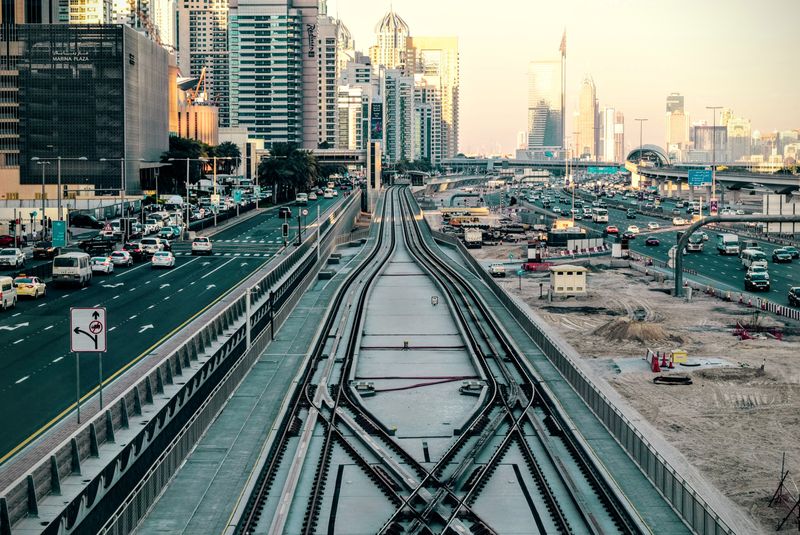Table of Contents
Stories from Tokyo, Manila, and Tarragona: Highlighting the Importance of Reliable and Efficient Public Transport
Greenpeace has been advocating for affordable and accessible public transport around the world, emphasizing its significance in transforming both urban and rural communities. Whether it’s for commuting to work, school, healthcare facilities, or visiting loved ones, reliable and affordable public transport provides people with the freedom to move through life. In honor of Mobility Week, we bring forward three stories from Tokyo, Manila, and Tarragona to demonstrate the diverse and universal need for efficient public transport.
Joana’s Struggle with Inefficient Public Transport in Tarragona
In Tarragona, Catalonia, Joana, a high school teacher, faces the stress of an unreliable and infrequent train service during her daily commute to Barcelona. The scarcity of trains often results in overcrowding and passengers standing throughout the journey. If Joana fails to catch her usual train, she has to wait for the next one, potentially making her late for work. Buses are not a viable alternative in her area, forcing her to rely on the train. The entire journey takes her 60 minutes, further adding to her commuting woes.
Despite the challenges, Joana chooses the train because it offers cost savings with a frequent traveler pass and helps reduce emissions. She believes that a more frequent and reliable train service would significantly improve her commuting experience and enhance her social and cultural life. Joana’s story resonates with the millions of people who depend on public transport for their daily needs, calling for governments to prioritize making it simpler, more affordable, and accessible.
Bea’s Struggle with Commuting in the Philippines
In the Philippines, Bea Dolores commutes daily from Laguna to Metro Manila. Her journey involves multiple modes of transport, starting with a tricycle to the nearest stop, followed by a Jeepney, a popular mode of public transport in the Philippines. She then crosses a footbridge with steep steps, making it difficult for senior citizens and people with disabilities. Bea’s journey continues with a bus ride, another challenging footbridge, and finally a walk to the Metro station. This arduous commute takes her five hours every day.
Bea’s story showcases the resilience of the Filipino people, but it also highlights the need for improved infrastructure and accessibility in public transport systems. Creating a world where every journey is an opportunity to thrive requires simplifying and enhancing the commuting experience for individuals like Bea, who face daily struggles to reach their destinations. Bea’s long commute is a stark reminder of the challenges faced by many commuters and calls for urgent action to improve public transportation in the Philippines.
Yuma’s Journey in Tokyo: Accessibility and Affordability
In Tokyo, Yuma, a student and Greenpeace intern, travels from Fuji, Shizuoka Prefecture, to the office in Shimbashi. Despite living in an area where buses no longer operate due to a declining population, Yuma has access to a car ride to the nearest station. From the local station, she can choose between the Shinkansen (bullet train) and regular trains, with the former being faster but more expensive. In Yuma’s case, the affordable option is the slower train.
Although Yuma benefits from a 20% student discount on train tickets, the affordability and availability of travel options limit her trips to the office to a maximum of three times a week. She emphasizes the importance of accessible and affordable travel, recognizing its impact on learning opportunities and future prospects. Yuma’s story underscores the role of public transport in creating equal opportunities and highlights the need for investment in infrastructure to ensure accessibility and affordability for all.
A Global Need: The Power of Public Transport
The stories of Joana, Bea, and Yuma illustrate the power of public transport in reducing emissions, improving air quality, and creating greener spaces. Beyond environmental benefits, public transport also plays a vital role in increasing wages, promoting equality, creating jobs, strengthening social cohesion, and combating loneliness by connecting communities.
To address the challenges faced by these individuals and countless others who rely on public transport, governments worldwide must prioritize improving infrastructure for cycling and walking, investing in safe, reliable, and affordable public transport, and ensuring universal access to such services. It is both an opportunity for social and climate justice and a direct link to an enhanced quality of life for all.
In conclusion, the stories from Tokyo, Manila, and Tarragona emphasize the need for reliable and efficient public transport systems that cater to the diverse needs of individuals and communities. Investments in public transport infrastructure will not only address the pressing issue of climate change but also contribute to the improvement of social and economic conditions globally. It is imperative that governments act swiftly to make public transport simpler, more affordable, and accessible, thereby empowering individuals to thrive and creating a sustainable future for generations to come.

<< photo by Tim Gouw >>
The image is for illustrative purposes only and does not depict the actual situation.
You might want to read !
- Why Affordable and Accessible Public Transport is Essential for Social and Climate Justice
- From the Air: Examining Spain’s Top 10 Environmental Challenges
- Greenpeace Reacts to New Net Zero Report: A Critical Analysis
- Climate Activists Rally Against TotalEnergies’ LNG Terminal in Le Havre Harbour
- Japan’s Controversial Decision: Fukushima Radioactive Water Release Date Set
- “An Empowering Milestone: Japan’s Supreme Court Protects Transgender Rights in the Workplace”